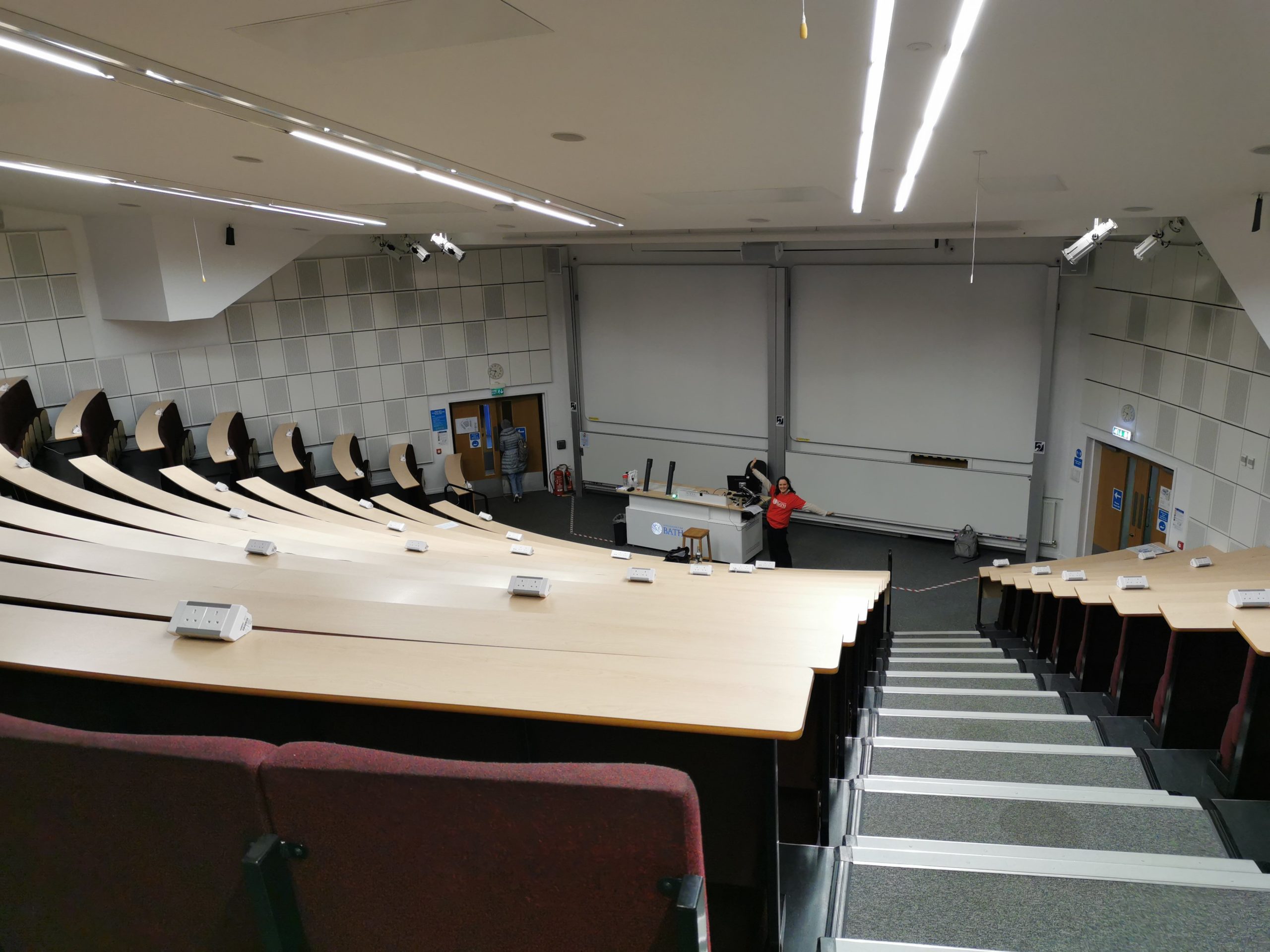1) The number of subjects you study
In order to pass the IB, you need to study 6 subjects, an Extended Essay, Theory of Knowledge and CAS. At university, however, you only do one subject usually over three years, culminating in a total of 360 credits (hence why it’s called a degree 🙂 ). During that time, you take different modules (units) which have an associated number of credits depending on whether the module lasts one semester (6 credits) or a year (12 credits).
For example, the one subject I study is Psychology and during my first year, I had a module called Mind and Behaviour which was taught all year, thus equated to 12 credits. I also had a module called Organisational Psychology which only lasted one semester, thus equated to 6 credits. You'd need to check this information for your chosen course as these things can change from year-to-year but I'm sure you get the idea.
2) The structure of the academic year
By now you will have noticed how some classes (modules) are only taught for 6 months. This is because the academic year is structured differently from IB. At IB, you will learn all your subjects consistently over 2 years until exams. At university, it is done differently with different universities having slightly different structures.
At Bath, the academic year is broken into two semesters. Semester 1 is from October to January, with an exam period in January. Semester 2 is from February to May, with exams in May.
3) The type of teaching
Teaching methods are probably one of the biggest changes when coming to university, and the one that took me the most time to adjust to. Instead of being in small classes with subjects being taught and led by a teacher, you will have three different teaching types: lectures, seminars, and labs. These timetabled hours spent in some form of teaching are known as contact hours.
The majority of the course content will be delivered through lectures. This is where you will be in lecture halls (they look like large amphitheatres) with all the other people doing that module. This can range from 30 to over 200 people. The lecturer stands at the front of the room and delivers the content, often with a PowerPoint slide. They do encourage questions, and sometimes discussion, but often you are just there to listen and take notes.
Seminars are the most similar to what you would be used to at school. They are sessions usually used to expand on content taught in lectures, through discussion. You may often have reading you will be asked to do in preparation. You may also have seminars to discuss upcoming coursework.
Finally, labs are laboratory-based teaching (the name’s in the title! 😉 ). Not all subjects have labs, and depending on the subject they differ in their content. For example, in my subject, I’ve only ever had a couple of IT labs, where I was taught to use software specific to my degree. Whereas, the more science-based subjects often have labs once a week, where they explore the practical side of the content they are taught in lectures.

4) The amount of independent study
Something that was also new to me when I started university, was getting to grips with the amount of independent study I was meant to do. Unlike at school, parts of your week will not be timetabled, and it is up to you to make sure you do any required work for your modules and complete your assignments. The number of contact hours, and thus the amount of independent study, differs depending on the degree.
At Bath, Humanities & Social Sciences degrees often have around 8 to 17 contact hours a week, depending on the course and unit choice, whereas Science or Engineering degrees are more likely to have over 20.
5) Learning to manage your time
At university, it is often left up to you to do the work and come to classes. Unlike school, there is no one chasing you up to hand work in or attend the classes. So it is up to you to manage your time, which not only includes work but also chores such as cooking, cleaning, doing your laundry, and having a social life. Learning to manage your time is probably one of the steepest learning curves, but certainly the most rewarding one.
6) The grades
Finally, (and well done if you have made it this far!) the grades are done completely differently at uni too! Just to make things easy… The grades work like this: 0-39% = Fail, 40-49% = 3rd, 50-59% = 2:2, 60-69% = 2:1, 70-100% = 1st .
And there you have it! 6 key differences between IB and university, which you will now hopefully feel more prepared for. Don't forget to check the website for the most up-to-date information as the examples I've quoted in this post are applicable to my current course.
Respond
